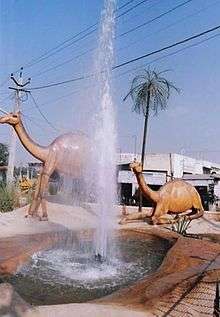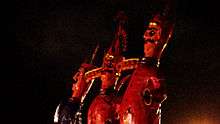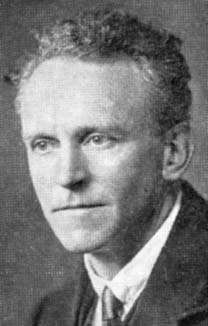Beawar
| Beawar ब्यावर (Hindi) | |
|---|---|
| City | |
 Beawar  Beawar Location in Rajasthan, India | |
| Coordinates: 25°36′N 74°19′E / 25.6°N 74.32°ECoordinates: 25°36′N 74°19′E / 25.6°N 74.32°E | |
| Country |
|
| State | Rajasthan |
| District | Ajmer |
| Founded by | Charles George Dixon |
| Government | |
| • Type | Municipal Council |
| • Municipality Chairman | [Babita Chouhan] |
| Elevation | 439 m (1,440 ft) |
| Population (2011)[1] | |
| • City | 342,935 |
| • Urban | 151,152 (44.1%) |
| • Rural | 191,783 (55.9%) |
| • Literacy | 64.2% |
| • Sex ratio | 970 female per 1,000 male |
| Languages | |
| • Spoken | Hindi, Marwadi |
| • Official | Hindi, English |
| Time zone | IST (UTC+5:30) |
| PIN | 305901 |
| Area code(s) | 01462 |
| Vehicle registration | RJ-36 |
| Website |
www |
Beawar (pronounced [/bəˈjaːʋər/]) is a city in Rajasthan, India. Beawar was the financial capital of Merwara (मेरवाड़ा) state of Rajputana. As of 2011, the population of Beawar is 342,935.[1] It is located 184 kilometres (114 mi) southwest of the state capital Jaipur, amidst Aravali hills. The city used to be a major center of trade, especially in raw cotton, and used to have cotton presses and the Krishna cotton mills. Currently, major industries include mineral-based units, machine-based units, machine tools and accessories, pre-stressed concrete pipes, plastic products, textiles, wooden furniture and asbestos cement pipes. Beawar is the largest producer of cement in northern India and home to Shree Cement. It lies in mineral-rich region having reserves of feldspar, quartz, asbestos, soapstone, magnesite, calcite, limestone, mica, emerald, granite, and masonry stone. Reserves of barytes, fluorite, wollastonite and vermiculite have also been found. Nearest airports are Jodhpur (145 km) and Jaipur (190 km). It is also connected by RSRTC operated buses to all parts of Rajasthan, and neighboring Delhi NCR, Ahmedabad (Gujarat), Gwalior (Madhya Pradesh). It also had railway connectivity with Delhi, Mumbai, Ahmadabad, Bangalore (bi-weekly), Haridwar, Dehradun (weekly), Bareilly and Kolkatta.
History
Beawar was founded by Colonel Charles George Dixon (1795-1857) in 1836.[2] Beawar was part of British India, and the administrative headquarters of Merwara district. The original name of city was "Be Aware" which changed to Beawar with passage of time. Since the ancient days, the region where Beawar lies is called Magra-Merwaran, and it was named after a local village called Beawar Khas by the British. This region was ruled by fierce tribes such as the kathat (chouhan Rajput, the descendents of prathviraj chouhan)and Rawat Rajputs (also offshoot of the same family as the Kathats but still following their ancestral religion Hinduism), British tried to subdue them but were unsuccessful because the tribes were scattered across many small villages and they were excellent in conducting guerrilla warfare. The Battle of Shyamgarh was fought between the Kathats and British. The British won and Kathats abandoned the fort of Shyamgarh,but employed guerilla tactics causing great loss to the British. So British founded a military cantonment with fortified walls for protection and further military missions. Another factor involved in building the cantonment here was Beawar's location at the strategic tri-junction of the royal states of Jaipur, Jodhpur, and Udaipur.
To keep the menace of Kathats and Rawat-Rajputs at bay, British raised a battalion, enrolling Kathats and Rawat-Rajputs (designating them as a Martial Race), and named it Magra-Merwara battalion. They used this battalion for further military missions which proved quite efficient. According to a legend, British posted a sign saying "be aware" as a warning to the British caravans and officers leaving the cantonment or crossing the cantonment. Slowly with time the local people came to think of it as the name of the cantonment and so the cantonment began to be called Beawar. It is a subdivisional headquarters.
It is the birthplace of famous classical mathematician Duncan Sommerville.
Beawar City

Inner Beawar City: The inner city of Beawar is the old historical city, also called "Walled City", is the main market area. It has shops for all sorts of categories, from premium Raymond shop to local grocery store.
Outer Beawar City The outer area of Beawar is a developing area. Residential expansion is taking place on Ajmer road, Sendra Road and Delwara road. New shopping complexes and hotels are also being built. The outer city is home to all transport hubs such as central bus station, railway station, and private tour operators. City also has church, degree colleges, shopping complex and cinema halls (Jaimandir and City center - a newly built multiplex).
Hotels in Beawar Most of the hotels are centered on the bus stand and railway station, but as traveling patterns change, new hotels are coming up on the roads leading into town.
Education
Beawar has numerous schools and colleges spread throughout the city.
Colleges
- Infofix Solutions
- Sanatan Dharm Government College
- Govt patel senior secondary school, Beawar
- Beawar Polytechnic College
- Satyam Institute of Technology
- A.R.T. Polytechnic College
- NIIT
- ITI
RBSE-affiliated schools
- Adarsh Vidhya Mandir, Beawar
CBSE-affiliated schools
- Mangal Newton Sr. Sec. School
- St Paul's Sr. Sec. School
- Central Academy Shree Cement
- Kendriya VidyaAdarsh Vidhya Mandir sec. school
- Vivekanand International College (affiliated with AAIDU Allahabad)
- Aaryabhatta Academy
- GDA Group
- Guru Siddharth International School
- GDA-HCL-Resonance
- St. xavier's secondary school
- Sardar Vallabhbhai Patel senior sec. school
- Jain Gurukul senior sec. school
- Mohammed Ali Memorial senior sec. school
- Giriraj senior secondary school Beawar
- Shree Chimman Singh Lodha senior sec. school
- Government Sanatan Dharma senior secondary school, Beawar
- Smt. Kanchan Devi Jain senior sec. school
- Shri Shanti Jain senior sec. school
- Godawari Girls senior sec. school
- Giriraj Senior Secondary school Ajmer Road beawar
- Noondri mendratan sec. school
- Salamat memorial school, alinagar, nundri mendratan.
- Littel Anjel middel school
IT Companies in Beawar
Culture

Veer Tejaji maharaj Beawar Fair is one of major fairs of town. Locals of Beawar gather to celebrate Baadshah, which means "King". The Baadshah travels across the town to reach the Mayor's office, spraying color all over the town in celebration of Holi, the festival of colors. It is celebrated in memory of the one-day king "Agarwal".
"Baadshah" is decorated in traditional style and travels up to the magistrate office, where it plays and gives its resolutions for the public. In front of it, another person, Birbal, dances in his special style. On the day of "Baadshah", there are performances by local people in "Teliwara" as well as near the Suraj Pol gate.
Annually the city also celebrate Dushera by burning effigy of Ravana on the dushera eve.
Demographics
As of the 2011 India census, Beawar had a population of 342,935. Males constitute 51% of the population and females 49%. Beawar has an average literacy rate of 64%, higher than the national average of 59.5%; with 60% of the males and 40% of females literate. While 15% of the population is under 6 years of age.[1]
Economy
Beawar is a hub of small scale industry (generating revenue in crores). Beawar is larger than many present district headquarters of Rajasthan. There has been demand for creating a Beawar district over the last two decades. Majority of employment is provided by RIICO.
Geography and climate
Beawar is located at 26.1° N 74.32° E. It has an average elevation of 439 metres (1440 feet).
Map of Beawar's old urban area
| Climate data for Beawar | |||||||||||||
|---|---|---|---|---|---|---|---|---|---|---|---|---|---|
| Month | Jan | Feb | Mar | Apr | May | Jun | Jul | Aug | Sep | Oct | Nov | Dec | Year |
| Average high °C (°F) | 25 (77) |
28 (82) |
34 (93) |
38 (100) |
41 (106) |
40 (104) |
36 (97) |
34 (93) |
36 (97) |
36 (97) |
31 (88) |
27 (81) |
33.8 (92.9) |
| Average low °C (°F) | 8 (46) |
12 (54) |
18 (64) |
23 (73) |
27 (81) |
29 (84) |
27 (81) |
26 (79) |
25 (77) |
20 (68) |
15 (59) |
9 (48) |
19.9 (67.8) |
| Average precipitation cm (inches) | 0.35 (0.138) |
0.27 (0.106) |
0.32 (0.126) |
0.35 (0.138) |
0.6 (0.24) |
3.26 (1.283) |
8.89 (3.5) |
6.44 (2.535) |
3.42 (1.346) |
0.45 (0.177) |
0.07 (0.028) |
0.06 (0.024) |
24.48 (9.641) |
| Source: Foreca | |||||||||||||
Surrounding municipalities
 |
Merta, Nagaur | Ajmer, Jaipur |  | |
| Jodhpur | |
Masuda | ||
| ||||
| | ||||
| Pali | TodGarh, Udaipur | Kota |
Religious landmarks
- Shoolbread Memorial C. N. I. Church of Beawar Rajasthan. It is the First Church of Rajasthan at Beawar.
- Mata ji ki dungri
- Ekta Circle (Bharat Mata Circle) {between ajmeri gate to mewari gate}
- Goverdhan Nath Temple (Shree nath ji Mandir)
- Neelkanth Mahadev
- Ramdev jj ka mandir Lulwa khas
- Oldest Vishnu temple ( Shri Rang ji ) Sendra road
- Aashapura Mata ka Mandir
- Shri Sayan Mata ka Mandir (Shyam Garh)
- Ramdev Ji ka Mandir Lulwa Khas
- Sankat Mochan Hanumaan Mandir (Shree Cement)
- Dadi Dham at Ajmer Road (temple of Shri Rani Sati Dadi, a replica of the popular one located in Jhunjhnu, Rajasthan)
- Shri SumatiNath Jain Temple
- Jain Dadawari
- subhash garden( company bag)
- shri Shantinath Jain Mandir, Pali Bazar, BEAWAR
- Mahadeo ji ki Chatri (Mahadeo Temple) {between ajmeri gate to mewari gate}
- Narsing Mandir
References
- 1 2 3 "Rajasthan Census 2011". Rajasthan: Directorate of Census Operations Rajasthan. Archived from the original on 2014-03-02. Retrieved 2014-03-29.
- ↑ http://www.beawarhistory.com/dixon%20frm.htm
External links
Beawar Tourism Beawar News Bus from Beawar to other Cities

